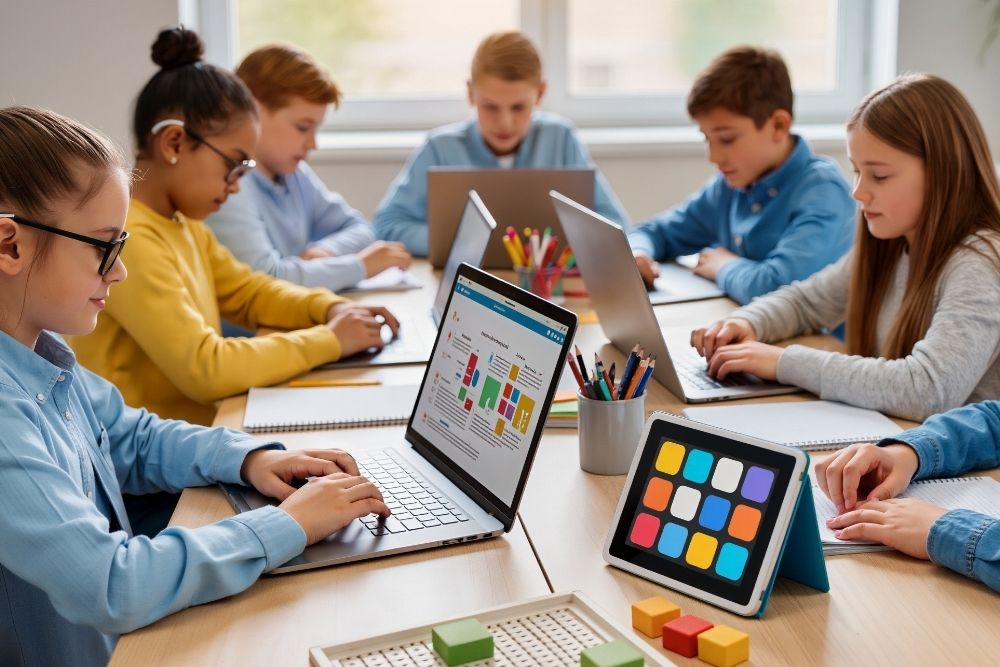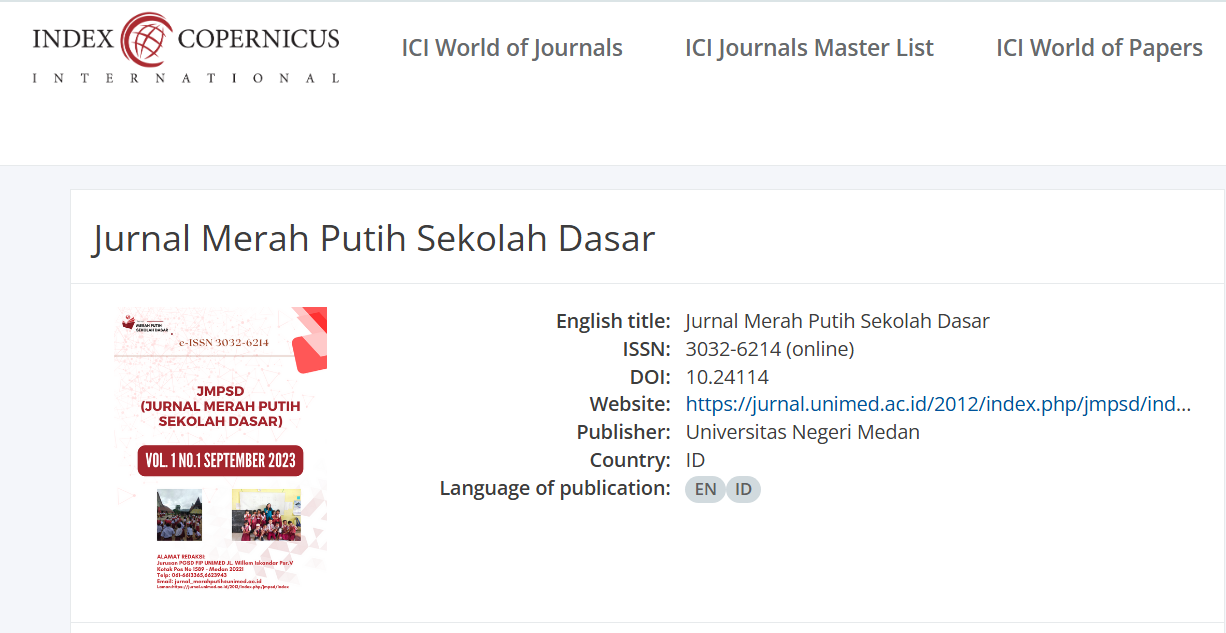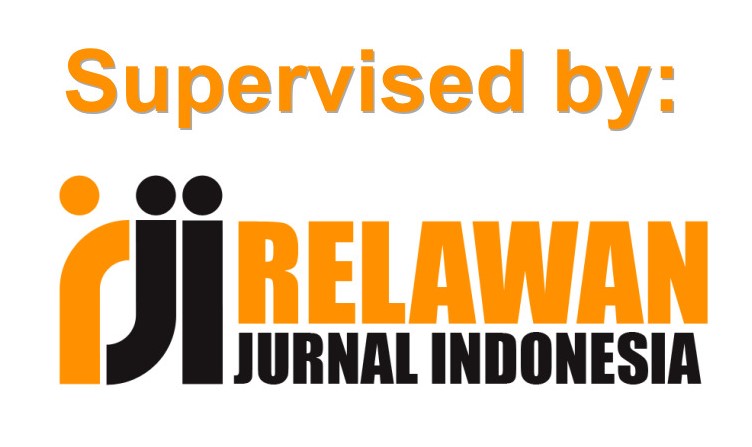THE EFFECT OF THE CORE LEARNING MODEL (CONNECTING, ORGANIZING, REFLECTING, EXTENDING) ON THE LEARNING OUTCOMES OF FOURTH GRADE STUDENTS IN IPAS
DOI:
https://doi.org/10.24114/jmpsd.v3i2.69501Keywords:
CORE learning model, Learning outcomesAbstract
This research is based on the low achievement of fourth-grade students in social studies, which have not yet met the established Minimum Completion Criteria. This is due to the teacher-centered learning process, which uses conventional teaching methods. This learning process does not optimally encourage student activity and engagement, creating a monotonous learning environment that results in low student motivation and enthusiasm for learning. This study used the CORE (Connecting, Organizing, Reflecting, Extending) learning model, which emphasizes student-centered learning, where students connect, organize, rethink, and expand their understanding of the learning material. This study employed a nonequivalent control group design with a sample of 72 students (36 students in the control class and 36 students in the experimental class). The research instrument was a multiple-choice test that had been piloted. The data were analyzed using descriptive and inferential statistics. The results indicate that the CORE (connecting, organizing, reflecting, and extending) learning model significantly influences the science learning outcomes of fourth-grade students at MIN 1 Padangsidempuan. This is demonstrated by the hypothesis test calculation using a paired sample t-test, which showed a value of 0.000 < 0.05, thus rejecting H0 and accepting Ha.References
Apiek, dkk. 2022. The Concept of Sekolah Penggerak Digital Paradigm in Supporting Profil Pelajar Pancasila. Proceedings of the 4th International Conference on Innovation in Education, Science and Culture, ICIESC. 1-5.
Ali, H., & Purwandi, L. 2017. Millennial Nusantara, Pahami Karakter, Rebut Simpatinya. Gramedia Pustaka Utama.
De Porter, Bobbi dan Hernacki, Mike. 2017. Quantum Learning. Membiasakan Belajar Nyaman dan Menyenangkan. Terjemahan oleh Alwiyah Abdurrahman. Bandung: Penerbit Kaifa.
Golberg, M. 2007. Arts and Learning. An Integrated Approach to Teaching and Learning in Multicultural and Multilingual Settings. Longman.
Madya, S. 2016. Teori dan Praktik Penelitian Tindakan (Action Research). Alfabeta.
Siregar. WM. 2020. Kontribusi Tingkat Pemahaman Perumusan Pancasila Terhadap Kompetensi Guru SD Negeri Di Kecamatan Medan Helvetia. Elementary School Journal. 10(1).
40-51. https://doi.org/10.24114/esjpgsd.v10i1.19285

Downloads
Published
How to Cite
Issue
Section
License
Copyright (c) 2025 Nikmal Luthfi, Imelda Free Unita Unita, Laurensia Masri Perangin-angin Perangin-angin, Lala Jelita Ananda Ananda, Yusra Nasution Nasution

This work is licensed under a Creative Commons Attribution-ShareAlike 4.0 International License.
Authors who publish with this journal agree to the following terms: (1) Authors retain copyright and grant the journal right of first publication with the work simultaneously licensed under a Creative Commons Attribution-ShareAlike 4.0 International License (CC-BY-SA) that allows others to share the work with an acknowledgment of the work's authorship and initial publication in this journal; (2) Authors are able to enter into separate, additional contractual arrangements for the non-exclusive distribution of the journal's published version of the work (e.g., post it to an institutional repository or publish it in a book), with an acknowledgment of its initial publication in this journal; (3) Authors are permitted and encouraged to post their work online (e.g., in institutional repositories or on their website), as it can lead to productive exchanges, as well greater citation of published work (See The Effect of Open Access).






























